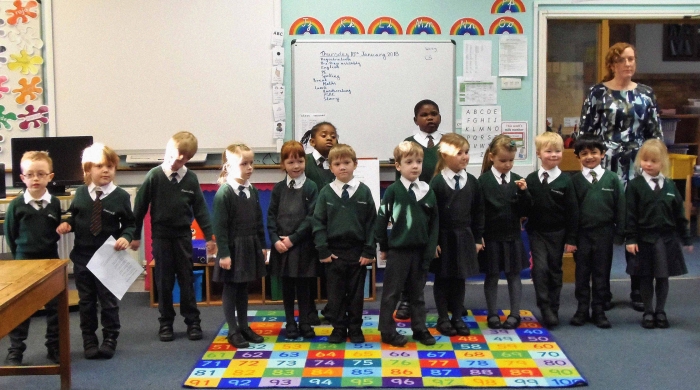Class 1 - Tips To Support Reading At Home
A little reading goes a long way!
- Remember: a good 10 minutes is much better than a difficult half hour!
- Plan a quality, quiet time to read together
- Please always write in the reading log even if you just write the page number you have read to so we know to change the book in the morning
Strategies and Reading Behaviours
In school children are taught a range of strategies they can use to help them work out unknown words.
For example:
- Phonics! If they can sound the word out using the phonics they know then encourage this as the first strategy
- Use the picture as a clue (this is not cheating!)
- Use picture clues along with the initial letter in the word
- Predict what the word could be from the context it is in
As children’s reading skills develop they adopt a range of good reading behaviours.
These include:
- Reading from left to right and matching each spoken word to a written one
- Recognising errors
- Re-reading to correct and re-reading to check
- Making meaningful but not always accurate guesses
- Reading with expression
As children progress further they:
- Use punctuation
- Follow print with their eyes
- Search for information in the print
- Read more fluently
- Use letter clusters to attempt new words
Reading with your child
Book Introduction: Spend time introducing the book
Strategy Check: Ask your child “What can we do if we get stuck on a word?” Listing the strategies refreshes your child’s memory and gives them the confidence to tackle a new word.
Independent reading: During this time try to remind your child of strategies rather than giving unknown words.
Returning to text for questioning: This is an important part of the reading session as it enables you to see if they have understood what they have read. This should be a light-hearted chat about the book – it’s not a test! More confident readers will also be able to return to the text to find out answers to questions.
To support with this, we have compiled a series of questions to help you get more from your child's reading, please click the link below to view this information:
Questions to help with your child's reading - Class I
Important point to remember
- Allow your child to read to the end of a sentence without interrupting.
- Share the title rather than asking them to read it if the words are unfamiliar.
- Remind your child to point to each word individually rather than continuously run their finger underneath if they are still learning to match one to one.
- Alternate saying well done or that was good by telling your child what was good.
- Remember not to expect your child to work out a word that is not in their vocabulary.
- Alternate the strategies you suggest rather than giving the same strategy prompt e.g. sound it out.
- Once isn’t necessarily enough - Encourage your child to re-read favourite books and poems as well as their school reading scheme book. Re-reading helps children read more quickly and accurately and builds comprehension.
- One more time - When your child has sounded out an unfamiliar word, have him or her re-read that sentence. Often children are so busy figuring out a word they lose the meaning of what they've just read.
- I read to you, you read to me - Take turns reading aloud at bedtime. Children enjoy this special time with their parents.
- If your child is now reading longer books, please do not feel you need to get through a book a night. Just read for the same amount of time and note the page number you have read up to in their reading log.
Remember: a good 10 minutes is much better than a difficult half hour!
We all learn more when we enjoy what we are learning! Have fun in the process of building a life long love of books with your child.



